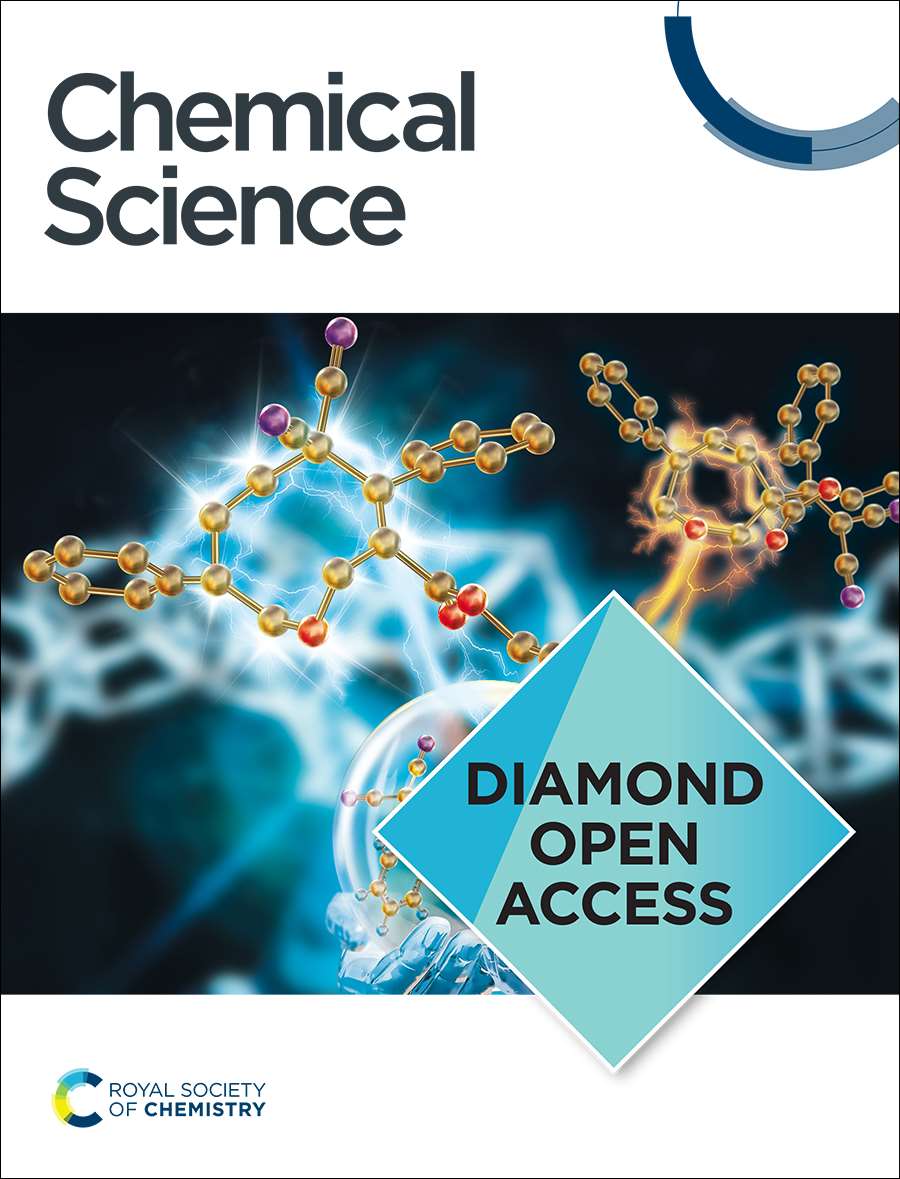利用C-H乙酰氧基化:富氧有机框架的门户
IF 7.6
1区 化学
Q1 CHEMISTRY, MULTIDISCIPLINARY
引用次数: 0
摘要
过渡金属催化碳氢官能团化已成为有机合成中一种强有力的工具,因为它利用了有机化合物中最丰富的官能团,即碳氢键,省去了预官能团化的需要。从分子骨架中存在的众多碳氢键中选择性地功能化一个特定的碳氢键是一项有趣而艰巨的任务。为了区分几乎相同的C / H键,进化出了不同的策略。定向基团(DG)辅助、非定向功能化和非共价相互作用为解决针对不同碳氢键的区域选择性挑战做出了重大贡献。然而,仍然需要进一步的进展。在各种C-H功能化中,C-H乙酰氧基化是一种关键的有机转化,它可以将惰性的C-H键直接功能化为多功能的乙酰基。本文综述了C-H乙酰氧基化的各种策略,即定向和非定向C-H乙酰氧基化,电化学C-H乙酰氧基化,光诱导C-H乙酰氧基化。这篇综述提供了一个全面的覆盖范围,这将是非常有用的化学家在学术界和工业界,谁是努力将氧纳入有机分子骨架。本文章由计算机程序翻译,如有差异,请以英文原文为准。
Harnessing C–H acetoxylation: a gateway to oxygen-enriched organic frameworks
Transition metal catalyzed C-H functionalization has emerged as a robust tool in organic synthesis, as it utilizes the most abundant functional group of an organic compound i.e. C-H bonds, omitting the need for pre-functionalization. Selectively functionalizing a particular C-H bond out of numerous C-H bonds present in the molecular skeleton is a fascinating and difficult task to perform. To differentiate between almost identical CH bonds, various strategies have evolved. Directing group (DG) assistance, non-directed functionalizations, and non-covalent interactions have significantly contributed to address the challalenge of regioselectivity in taregting distinct C-H bonds. However, further advancements are still required. Among various C-H functionalizations, C-H acetoxylation is a pivotal organic transformation which enables direct functionalization of otherwise inert C-H bonds into versatile acetoxy groups. In this review, various strategies for C-H acetoxylation, i.e. directed and non-directed C-H acetoxylation, electrochemical C-H acetoxylation, photo-induced C-H acetoxylation, are covered. A comprehensive coverage provided by this review will be extremely useful to chemists in both academia and industry, who are striving to incorporate oxygen into organic molecular skeletons.
求助全文
通过发布文献求助,成功后即可免费获取论文全文。
去求助
来源期刊

Chemical Science
CHEMISTRY, MULTIDISCIPLINARY-
CiteScore
14.40
自引率
4.80%
发文量
1352
审稿时长
2.1 months
期刊介绍:
Chemical Science is a journal that encompasses various disciplines within the chemical sciences. Its scope includes publishing ground-breaking research with significant implications for its respective field, as well as appealing to a wider audience in related areas. To be considered for publication, articles must showcase innovative and original advances in their field of study and be presented in a manner that is understandable to scientists from diverse backgrounds. However, the journal generally does not publish highly specialized research.
 求助内容:
求助内容: 应助结果提醒方式:
应助结果提醒方式:


